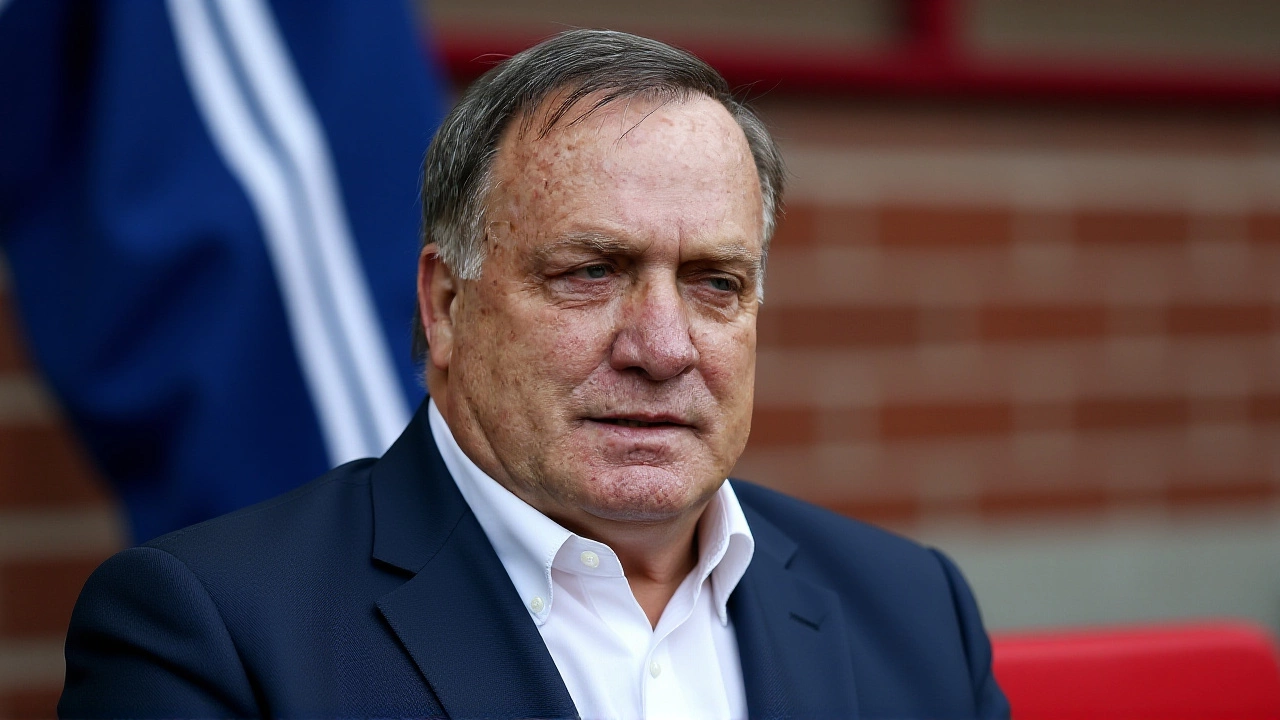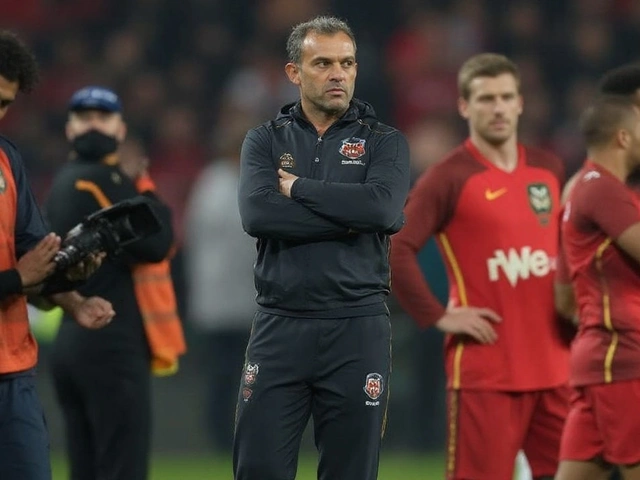
When Dick Advocaat walked into the Sunderland Association Football Club dressing room in October 2014, he inherited a team clinging to Premier League survival by a thread. Five months later, he helped them scrape through — barely. Now, nearly a decade later, the 77-year-old Dutch manager is saying something that makes fans shudder: Sunderland might need to go down again — on purpose — to rise again. In a January 2025 interview with The Mirror, Advocaat bluntly suggested the club could be "better off going down" like their arch-rivals Newcastle United, whose 2016 relegation became the unlikely launchpad for their modern renaissance.
Why Newcastle’s Fall Was a Gift
It’s easy to forget now, but Newcastle United were a shell of their former self in 2016. Fan unrest, a fractured board, and a squad full of aging stars left them staring at the drop. They went down. And then — shockingly — they won the EFL Championship in 2016-17 under Rafael Benítez. The club didn’t just return to the Premier League; they came back stronger, smarter, and better financed. Their relegation wasn’t a failure — it was a reset.
Advocaat sees the same potential in Sunderland AFC. After their own 2017 relegation — a 24-point disaster that ended a decade-long top-flight stay — the club has been stuck in a cycle of near-misses and instability. They’ve had four different owners since 2017, including Stewart Donald, whose tenure ended in financial controversy. Their squad turnover has been brutal. And yet, despite £100 million in investment over the last eight years, they’ve never even reached the Championship playoff final.
The Rebuilding Trap
Here’s the painful truth: Sunderland AFC has spent the last eight years trying to avoid relegation — from the Championship. That’s right. Not the Premier League. The second tier. They’ve been stuck in a purgatory of mid-table mediocrity, spending more on wages than they earn, signing aging Premier League rejects, and losing money every season. In 2023-24, they finished 11th — their highest in five years — but still lost £12 million. That’s not progress. That’s financial bleeding.
Advocaat, who managed Sunderland to a 16th-place finish in 2014-15 — a season where they survived on the final day with a 3-0 win over Newcastle United — knows this better than most. He remembers the panic of survival. He also remembers what happens when you survive but never grow.
"You can’t build a house on sand," he told The Mirror. "If you keep spending money you don’t have just to stay up, you’ll collapse under your own weight. Sometimes, you have to knock the walls down to rebuild properly."

The Tyne-Wear Divide
Geography makes this more than just a football analogy. Sunderland and Newcastle upon Tyne are separated by just 12 miles, yet their paths have diverged wildly. One club used relegation as a catalyst. The other treats it like a plague. The Tyne-Wear derby used to be a battle for pride. Now, it’s a battle for survival — and identity.
When Newcastle United returned to the Premier League in 2017, they had a new owner (Mike Ashley’s exit), a clear sporting director (Lee Charnley), and a manager who built from within. Sunderland AFC has had none of that. Their last permanent manager, Tony Mowbray, left in 2023 after just 14 months. Their academy, once a Premier League powerhouse, now produces fewer than two first-team players per season.
What’s Next for Sunderland?
The 2025-26 season could be the tipping point. With new ownership talks underway and a potential £50 million investment rumored, the club faces a choice: spend more to chase promotion — again — or take a breath, cut costs, and rebuild properly. Advocaat isn’t calling for chaos. He’s calling for clarity.
"Look at the data," he said. "In the last 10 years, only three Championship clubs have been promoted and stayed up. The rest? They came up, spent everything, and went straight back down. That’s not ambition. That’s suicide."
He’s not alone. Former Premier League executive David Sheepshanks, who once ran Sunderland AFC’s commercial operations, told FourFourTwo in February 2025: "The club’s DNA has been corrupted by short-term thinking. They’ve been trying to win the Premier League while still in the third division of their own ambition."

The Bitter Truth
For Sunderland fans, the idea of relegation is unthinkable. It’s the nightmare that haunts every matchday. But what if the nightmare isn’t going down? What if the nightmare is staying stuck — watching your rivals rise while you keep paying for the same old mistakes?
Advocaat’s words sting because they’re true. Sunderland hasn’t lost their soul. They’ve lost their strategy. And sometimes, the bravest thing a club can do is accept defeat — not as an end, but as the first step toward something better.
Frequently Asked Questions
Why would relegation help Sunderland financially?
Relegation from the Championship to League One would slash wage bills by an estimated 40-50%, as Premier League parachute payments expire and Championship revenue drops. Sunderland’s current wage-to-revenue ratio is 115%, far above the 80% sustainable threshold. A reset could allow them to rebuild with younger, cheaper players and reduce debt.
Has any club successfully rebuilt after relegation like Newcastle did?
Yes. Leeds United were relegated from the Premier League in 2004, spent 16 years in the lower leagues, and returned in 2020 through disciplined recruitment and academy investment. West Bromwich Albion also rebuilt after 2018 relegation, returning in 2020 with a younger squad and a clear sporting model — proving it’s possible without billionaire owners.
What’s the risk if Sunderland stays in the Championship?
The risk is stagnation. Since 2017, only three Championship clubs have achieved promotion and remained in the Premier League for more than two seasons. Sunderland has spent eight years chasing promotion without a playoff appearance since 2019. Continued financial losses, fan disillusionment, and talent drain could push them toward League One — a far more painful fall than a planned reset.
How does Dick Advocaat’s opinion carry weight?
Advocaat managed both Sunderland AFC and Newcastle United, giving him unique insight into both clubs’ cultures. He led Sunderland to safety in 2015 and later helped Newcastle stabilize during their 2006-07 season. His analysis isn’t emotional — it’s tactical, based on decades of managing clubs under pressure.
Could Sunderland avoid relegation and still rebuild?
Theoretically, yes — but only with radical change. That means selling top earners, investing in youth, and hiring a sporting director with full authority. But since 2017, every attempt at "rebuilding while staying up" has failed. The club’s financial model is too fragile. Relegation, while painful, offers the only clean slate left.
What’s the timeline for a potential relegation strategy?
Advocaat hinted at the 2025-26 season as a critical window. If ownership doesn’t commit to a clear plan by summer 2025 — whether that’s promotion or a reset — the club risks losing its last chance to rebuild before financial penalties from the EFL’s Profitability and Sustainability Rules kick in harder in 2026.


